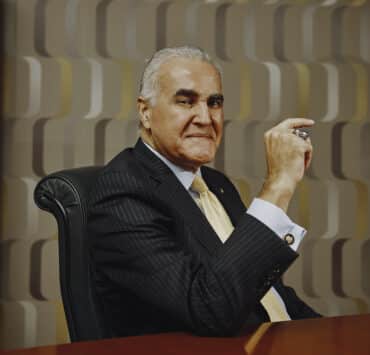|
Getting your Trinity Audio player ready...
|
We are all shaped in some capacity by the environment in which we grew up. Sergio Urias, who currently serves as the cochair of private equity and head of the Latin America practice at Covington & Burling and was co-honored with the American Lawyer’s Dealmaker of the Year award in 2020, credits much of his success to his hometown of Juárez, Mexico.
“You have within this huge population the DNA of go-getters and people that just want to improve their lives and make something better out of it,” Urias explains. “It was only later that so many of us that came from there realized that the entrepreneurial spirit of the city is what made us who we are. The mixture of the Fortune 500 companies who set up manufacturing facilities in the ’80s and those immigrants who are trying to cross the US border makes it so that people live somewhere between both countries.”
As Urias notes, however, there is another side to the city. The transient nature of so many of Juarez’s inhabitants and the ever-present threat of extreme cartel violence can make it a truly scary place to be. In fact, that is what led Urias and a multitude of other professionals who hold the city dear to found Project Paz, a New York City-based nonprofit aiming to help “the children of our brothers and sisters affected by drug-related violence in Juarez, Mexico, through fundraising efforts.” Project Paz brings together hedge fund managers, leaders in the fashion industry, and a myriad of other people who feel that they owe their own accomplishments to the city that raised them.
Urias knows a thing or two about bridging worlds. The deal that won him his most recent award involved representing the interests of fourteen different banks as well as Argentina’s largest payment processing company, Prisma Medios de Pago. As Covington was negotiating a deal, a massive devaluation of the peso effectively shut down the debt markets. As Urias puts it, it was the kind of deal that could occupy the entire contents of a memoir.
The lawyer jokes that he came near to losing his mind in the middle of the deal, but the memory is now associated with the warm glow of nostalgia. “It was like a 3-D chess game that you were playing blindfolded. At times, our internal discussions were harder than the external ones,” Urias says. “But I think part of the reason this deal got so much attention was because it was a ‘win-win’ across the board. John Steinbeck said, ‘What good is the warmth of summer, without the cold of winter to give it sweetness?’ I like that.”
It’s an apt analogy for Urias’s early days of success. He was able to attend one of the premier law schools in all of Mexico, Escuela Libre de Derecho: the school’s alumni only number around three thousand since its founding in 1912, but those graduates include ex-presidents, members of Mexico’s Supreme Court of Justice of the Nation, and a cavalcade of preeminent and accomplished citizens. Urias would go on to earn his master’s degree at Harvard, seemingly unstoppable in his pursuits.
But between those experiences came a bitter winter. “I was in my third year of law school, and I was on the top of the world,” the lawyer recalls. “Not only was my school so hard to get into but only a quarter of the people who start their second year actually finish. I was in my third year, and I was just on this high. And then life decided to slow me down for a bit.”
A freak diving accident left Urias paralyzed. He spent a year in rehabilitation in Miami and Houston with a supportive group of family and friends behind him. Just a year after that life-altering accident, Urias was back on the path to becoming a lawyer.
The accident has helped make Urias an advocate for disability rights. He was part of roundtable discussions held by Mexico’s Ministry of Foreign Affairs, which eventually resulted in Mexico’s proposal to the United Nations for a comprehensive international convention to protect the rights and dignity of persons with disabilities. Sergio has also found opportunities to advocate while at Covington & Burling—in fact, he says, Covington’s culture and approach when it comes to diversity and inclusion is a significant reason he came onboard.
“Covington gets it,” the lawyer says bluntly. “Diversity may now be the trend, but Covington was doing it right way before it was so, and we continue to lead in this area because we know it makes sense from both an ethics and business perspective.”
That same approach is probably why, Urias says, Covington is one of the most diverse private equity and Latin American groups in the US. “We strongly believe that if you want to promote creativity and innovation, you need people that think differently, people from different backgrounds,” Urias explains. As head of Covington’s Latin America practice, he leads a diverse group of lawyers and advisors from all over Latin America, including some of the leading Hispanic and female practitioners in the region. Urias is also dedicated to empowering younger lawyers, including Hispanic lawyers, to become the next generation of legal leaders.
The call for diversity and inclusion is one that is echoing loudly in the space right now, but it helps to hear it from an architect of one of the most complex global transactions to take place in recent years. The man raised by a city somewhere between two worlds keeps finding ways to bring new voices together.

